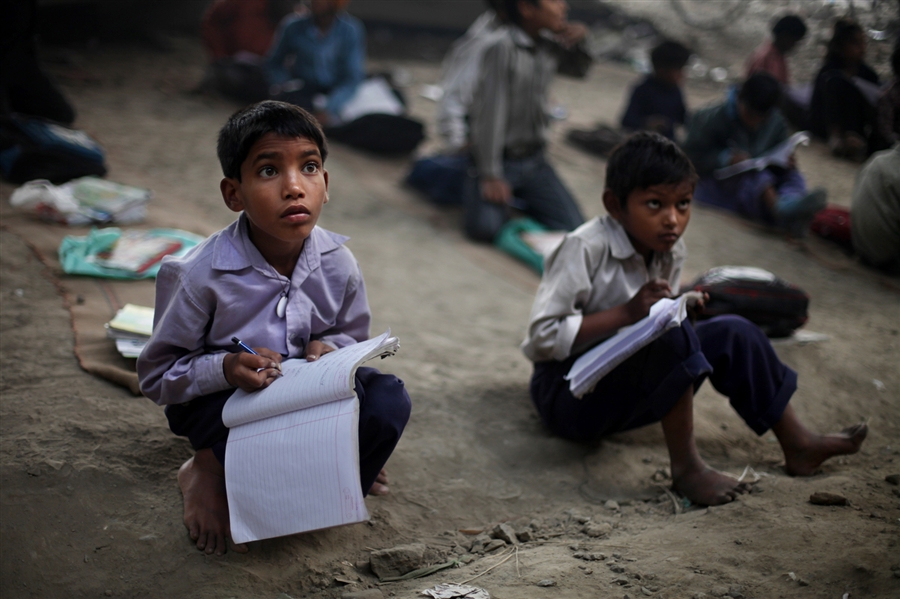
(Image credit: Altaf Qadri)
MSNBC shared this story a few days, and it truly is inspiring. Look at the careful attention of these boys. It reminds me that while I’m working hard to try and improve mathematics education, there are many people in the world who receive no formal education what-so-ever but are desperate for it.
Maybe this type of education (watch the teacher) isn’t the most useful model of learning these boys could be doing, and maybe there are some problems with a model of education that requires students to learn skills that have no value in their society, these are children who are desperate to learn and are being given an opportunity.
I see this and it makes me wonder if my attention is too focused on the wrong kinds of problems.
Carol Black says:
David, I think you do what you do because you know that despite the eagerness and even desperation of these children, they will not all be able to learn mathematics the way it is most often taught. What you are doing is trying to find ways to keep those bright lights from going out one by one. Obviously, the motivation these children feel will cause them to make a focused effort that we don’t always see in those who are more economically privileged. But pure effort will not bring understanding unless the insights of mathematics are rendered comprehensible to different kinds of minds, with different ways of thinking. One of the central points of “Schooling the World” is that we must take seriously the incontrovertible fact that, given current curricula and teaching methods, astronomical percentages of children like these will fail. They will receive the message that education is their pathway to a better life, their escape route from endless suffering –– and then they will fail to understand, fail to succeed, fail to thrive, and in failing, receive the message that their poverty is a result of their own deficiency. By looking for better ways to help children understand, you are trying to save them from this. This is vital work.
The other side of it is that what we really need to do is find a way that every child can light up like this. Rather than stick with a set curriculum and watch as children die on the vine one after another – because trust me, that will happen to many of these children – we need to find other ways to engage those who do not thrive with conventional academics. For some of those who struggle with math, this look of intensity and fascination may come with the opportunity to take apart an engine and put it back together, to plant and tend a garden, to create street theater (https://vimeo.com/7483877) or music (http://manzil.in/arts/), to work with animals (http://news.bbc.co.uk/2/hi/programmes/world_news_america/9097996.stm), to run a small business, to re-connect with culture and the land http://www.aljazeera.com/programmes/101east/2012/07/2012716122018878595.html We need to keep alive many pathways to a better life so that children who do not thrive in one setting can move to another rather than being discarded as failures by a too-narrow system. Your work is a desperately necessary part of this. Keep the faith.
all best, Carol
November 30, 2012 — 11:33 am
David Wees says:
Thank you, Carol. I was expressing to my wife last night how I wasn’t sure I was focusing my efforts in the right place, but your comment hits home for me. I will continue working on improving my small corner of education, and hope that I can find ways to translate what works here into things that can work elsewhere.
November 30, 2012 — 2:17 pm